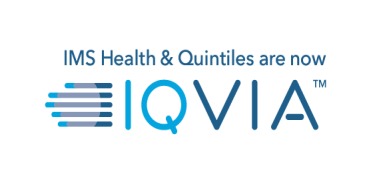Cost and volume pressures giving rise to value-added medicines: IQVIA

Rising pharmaceutical cost pressures and volume growth deceleration are forcing pharmaceutical companies to attempt to extract further value from existing medicines rather than solely pursuing new molecules, according to Aurelio Arias, Engagement Manager, European Thought Leadership, IQVIA.
Speaking at the Pharmapack 2020 conference, Arias said companies were changing from a largely tactical, strategic play to focusing on so-called value-added medicines – existing off-patent molecules that are combined or reformulated to offer benefits for patients and healthcare systems.
He said that while improving efficacy, reducing side effects and providing additional therapeutic options were all valid ways to enhance the value of a medicine, the one with the most untapped potential was improving the patient experience.
“This can be making sure you add another modality – this could be a new device or changing the way the patient uses the medicine,” Arias said.
He identified the diabetes market as having the most potential to innovate: “Imagine a patient who has to have several devices on them daily – it’s going to be a game-changer if you can shrink the device or integrate with wearable and smart devices.”
Arias said that in terms of administration, oral delivery accounts for nearly half of value-added medicines, with injectables the fastest growing segment with a 5-year compound annual growth rate of 14%.
With lower level innovation such as combination, formulation and dermal patches becoming an overcrowded market, Arias said more companies were looking at incremental innovation within their value-added medicines portfolios, such as inhalers and auto-injectors, or novel delivery technology such as nanoparticles, microchips and minipumps.
Arias estimated global sales of value-added medicine at around USD 43 billion in 2019, down 1% on the previous year.
Overall global pharmaceutical volume growth fell below 3% in 2019, with Arias citing recent market-distorting price reductions in the dominant US market, including that of EpiPen, the epinephrine auto-injector.
He said other major reasons for the deceleration were countries coming off periods of recession and implementing policies to limit the use of medicines and falling antibiotics usage.
Arias said that during a period of volume growth deceleration, generics companies struggle to source extra growth and typically focus on drug pricing strategies. However, he added that with major market, the US, increasing its buying power due to payer consolidation, many generics companies “especially the Asian ones, are finding it very difficult to get the price they need for their molecules.”

Position your company at the heart of the global Pharma industry with a CPHI Online membership
-
Your products and solutions visible to thousands of visitors within the largest Pharma marketplace
-
Generate high-quality, engaged leads for your business, all year round
-
Promote your business as the industry’s thought-leader by hosting your reports, brochures and videos within your profile
-
Your company’s profile boosted at all participating CPHI events
-
An easy-to-use platform with a detailed dashboard showing your leads and performance